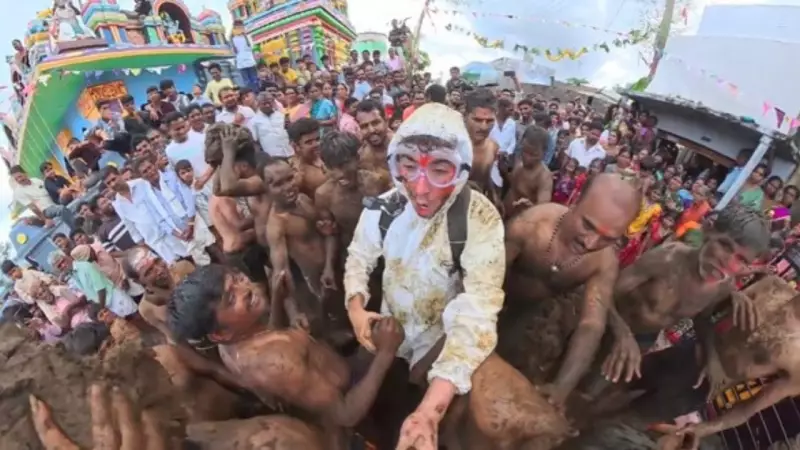
American content creator Tyler Oliveira has found himself at the center of a heated cultural debate following his recent video documenting a traditional Indian festival involving cow dung. The YouTuber, known for his travel vlogs, sparked outrage with his portrayal of the event, leading to what he describes as a "mock apology" that has only fueled further controversy.
The Viral Video That Started It All
Oliveira's video, which quickly gained traction across social media platforms, featured his experiences at a rural Indian festival where participants engage in rituals involving cow dung. The visual content and commentary presented in the vlog immediately drew criticism from viewers who accused the creator of cultural insensitivity and perpetuating stereotypes about Indian traditions.
The Controversial 'Apology'
In response to the growing backlash, Oliveira released a statement that many are calling a "mock apology." While expressing regret for any offense caused, the YouTuber simultaneously defended his content, asserting that his documentation of the festival was not racist in nature. This dual approach has divided audiences, with some viewing it as genuine contrition while others see it as insincere damage control.
Cultural Sensitivity in Travel Vlogging
The incident has reignited important conversations about the responsibilities of international content creators when documenting cultural practices different from their own. Many social media users have emphasized the need for travelers and vloggers to approach traditional ceremonies with respect and proper context, rather than treating them as mere spectacle for entertainment value.
Public Reaction Divided
Reactions to Oliveira's video and subsequent apology have been sharply polarized. Some viewers argue that the YouTuber was simply documenting his authentic experiences, while others maintain that his approach lacked cultural awareness and reinforced harmful stereotypes. The debate continues to rage across platforms like YouTube, Twitter, and Instagram, with Indian audiences particularly vocal about the representation of their cultural practices.
This incident serves as a reminder of the fine line content creators must walk when sharing cross-cultural experiences with global audiences, highlighting the ongoing need for cultural education and sensitivity in the digital age.





